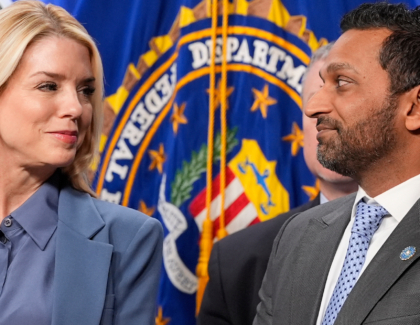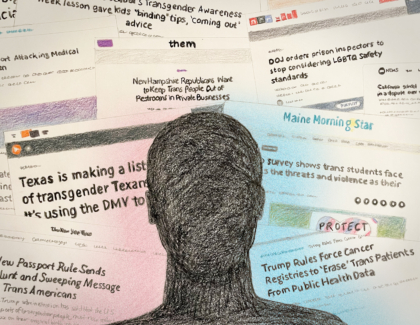Sign up for the daily CJR newsletter.
Bones are central to our bodies, and they’re central to a lot of idioms as well. One that has shown up more than a few times recently was a new one to us.
A recent obituary in The New York Times profiled Marion Goldin, a former producer for 60 Minutes, noting that she worked with the legendary anchor Mike Wallace and “took on the story that would allow Ms. Goldin to make her bones, the Watergate scandal.”
From the context, it seems that Ms. Goldin established her reputation with coverage of Watergate. Having no memory of the expression “make one’s bones,” and out of curiosity, we did a Nexis search and found these other examples in just the past two weeks:
One entertainment article began: “Ray Wylie Hubbard made his bones when he wrote ‘Redneck Mother,’ a tune that captured the American zeitgeist in 1973 when Jerry Jeff Walker made the song a hit.” A column began: “The California Nurses Association made its political bones, so to speak, in 1999.” An article in the same publication the next day said a local theater “first made its bones in the 70s as the home of iconic American playwright Sam Shepard.” An opinion piece spoke of Yasser Arafat, who “made his bones as a terrorist.” And a piece about a crime novelist said he “made his literary bones writing about other addictive substances.”
Make no bones about it: “Make one’s bones” seems to be a popular expression.
Research into its origin yields only skeletal results. The earliest entry in The Double-Tongued Dictionary, put together by lexicographer Grant Barrett of the popular Way With Words radio program, is for what’s described as a 1969 article about Mario Puzo’s The Godfather: “Business, for Puzo’s characters, is almost everything. Vito Corleone ‘made his bones’ (first killing) in cold blood for dollars.” (Though Barrett and others cite a New York Times article on March 8, 1969, on page C4, a search of the Times archive yields no such article for that day—or page.)
Indeed, many references to “made his bones” are to making a first killing to establish oneself in organized crime. Urban Dictionary, the Free Dictionary, and other not-so-reliable sources say so. And its association with organized crime is such that in 1986, Mario Cuomo, then New York’s governor, objected when a political rival said Cuomo had “‘made his bones’ in the Queens Democratic organization. “‘That’s a Mafia term,’ Mr. Cuomo said. ‘That’s all it is. It’s only used by the Mafia.’”
Apparently not, if the past two weeks’ citations alone are to be credited.
But where does it come from?
Much as we hate to cite Wikipedia, it has the most likely explanation: “It stems from, and is a corruption of, the idiom ‘establish one’s bona fides.’”
It’s easy to see, then, how all those other uses relate: In each of those situations, someone was establishing their “bona fides.” But if most people think “making one’s bones” is related to organized crime, or killing, they have a bone to pick with you if you use it to mean something else. Maybe it’s better to let people “make their bones” without breaking any.
Has America ever needed a media defender more than now? Help us by joining CJR today.







